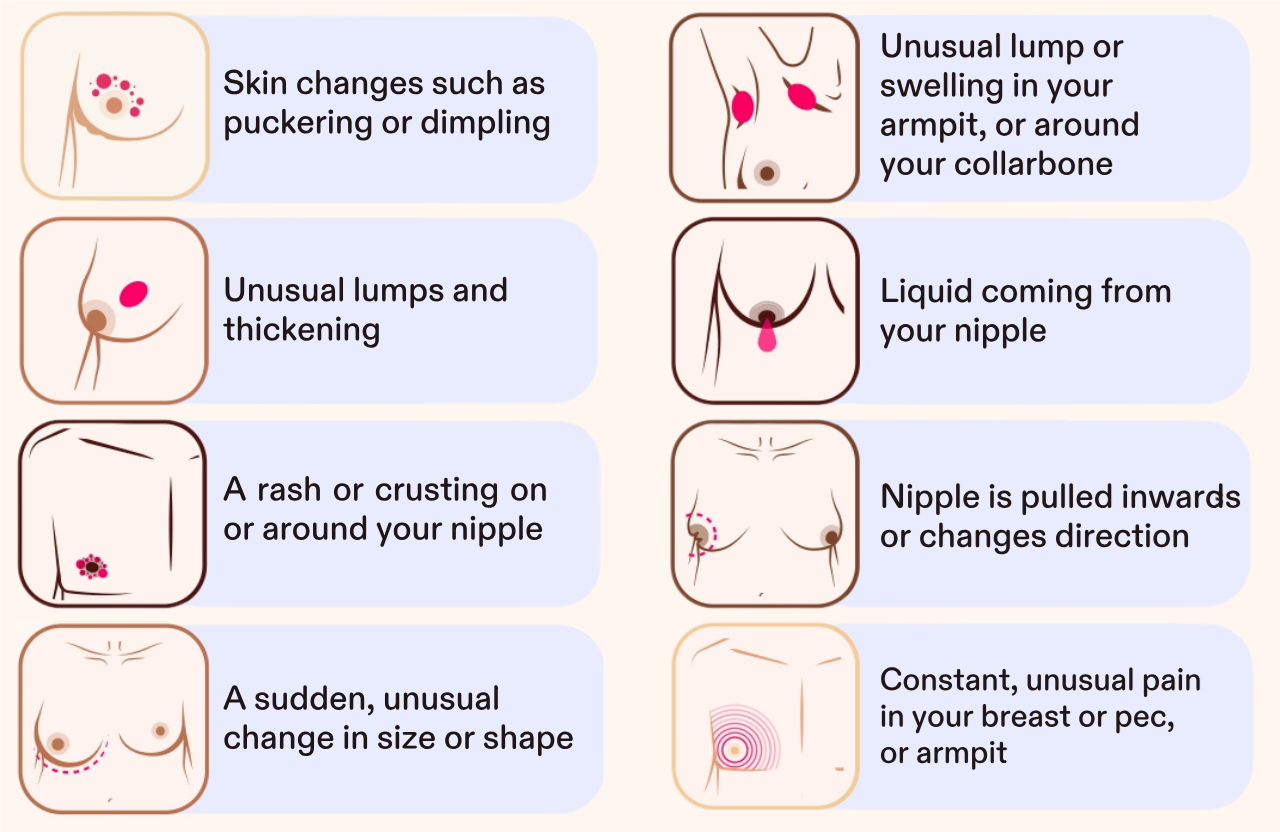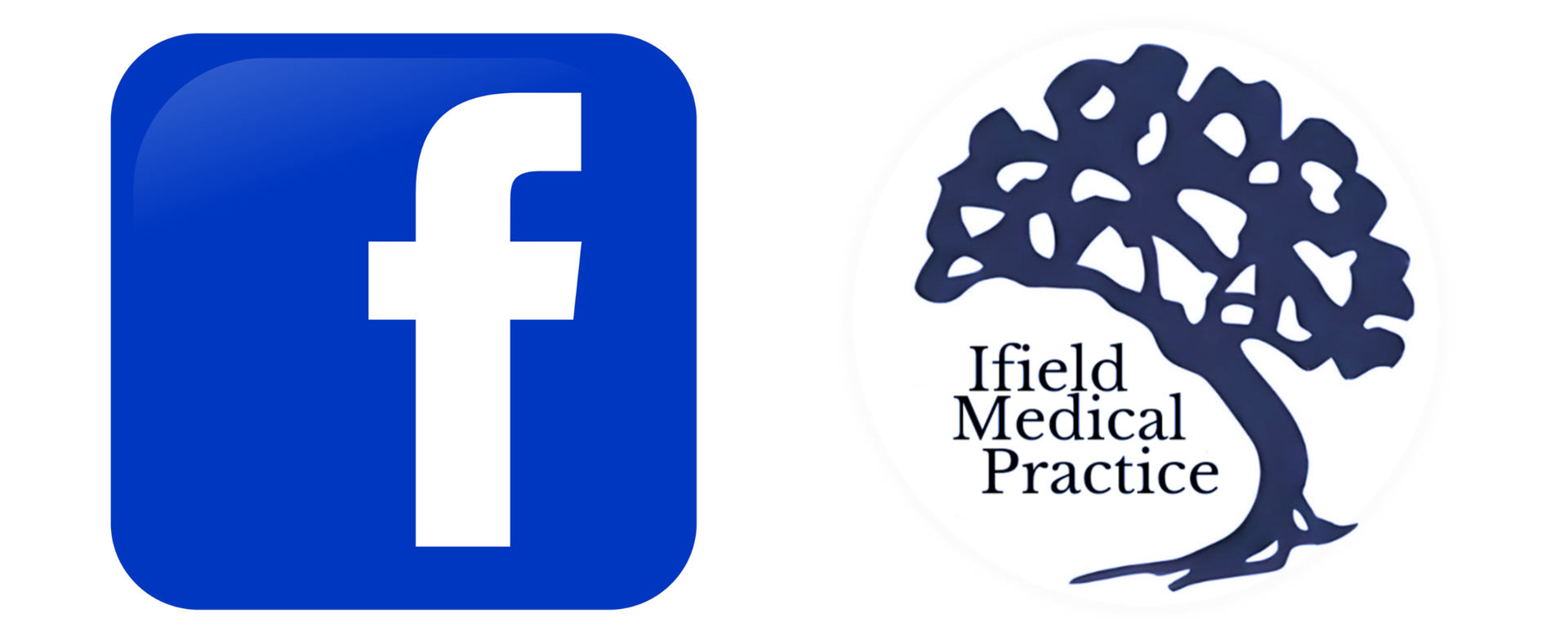Breast screening
The signs and symptoms of breast cancer

A lump is not the only sign of breast cancer, so getting to know more will help you notice anything unusual quickly. Remember, if you have periods, some of these changes might happen naturally with your cycle and can be perfectly normal.
Do
- Check every month
- Know what's normal for you
- Look AND feel
- If in doubt, get it checked out
When should I get checked for breast cancer?
In the UK, women aged 50 – 70 are invited to have breast screening every 3 years as part of a national screening programme. It is rare for men to have breast cancer, so they are not invited to be screened.
Breast screening uses x-rays or sound waves to take pictures inside your breast and look for breast cancer. Breast cancer screening could be by one of 2 scans:
- Mammogram
- Ultrasound.
You can visit a GP about a symptom of breast cancer and ask for a physical examination (check) of the area at any age. If you are experiencing any symptoms it may be nothing to worry about, if in doubt you should get it checked out.
Especially if these are sudden changes to your body or if you’re worried about a symptom
What are secondary breast cancer symptoms?
Secondary breast cancer is when breast cancer spreads to other parts of the body. The part of the body the cancer has spread to can affect these signs and symptoms.
Some of the most common parts of the body breast cancer can spread to are the lungs, brain, bones and liver. Some general symptoms of secondary breast cancer are:
- Feeling of tiredness and lack of energy.
- Loss of appetite and sudden weight loss.
Are pimples on my chest a sign of breast cancer?
It’s normal to have pimples on your chest and it’s rarely a sign of breast cancer. They’re much more likely a sign of an infection or skin condition.
- Feeling unwell and being sick.
- Difficulty sleeping.
What is usually the first symptom of breast cancer?
The most common first symptom of breast cancer is a lump or thickening of the skin in the breast, chest or underarm that people notice. But, there are other signs and symptoms of breast cancer to be aware of such as
- Skin changes such as puckering or dimpling.
- Unusual lump or swelling in your armpit, or around your collarbone.
- Unusual lumps and thickening.
- Liquid coming from your nipple.
- A sudden, unusual change in size or shape.
- Nipple is pulled inwards or changes direction.
- A rash or crusting on or around your nipple.
- Constant, unusual pain in your breast or pec, or armpit.
If you notice any of the signs and symptoms mentioned you should contact your GP.
Are my nipples normal?
Everyone’s chests, breasts and nipples can be different, whether they’re big, small, pimply, hairy or pulled. If your nipples have always looked and felt like they are, then you don’t need to worry. However, if you notice any sudden or unusual changes to your nipples, you should speak to your GP.
How long can breast cancer go undetected?
It’s possible to have breast cancer without knowing for months or years before it’s noticed. Breast cancer can progress at different speeds. The slower it progresses, the more difficult it is to notice as signs and symptoms come more gradually.
This is why it’s important to check your chest or breasts monthly to understand how they usually feel. This way you should be able to notice any sudden changes more easily.
Remember you are not wasting anyone’s time or your GPs time by getting checked out if you’ve noticed a change.
Can breast cancer be symptomless?
Breast cancer can be symptomless in the early stages. If you do notice any sudden changes with your chest or breast, you should speak to your GP. Mammograms (breast screenings) are effective at finding breast cancer, even if it is symptomless.
Page created: 18 June 2025
